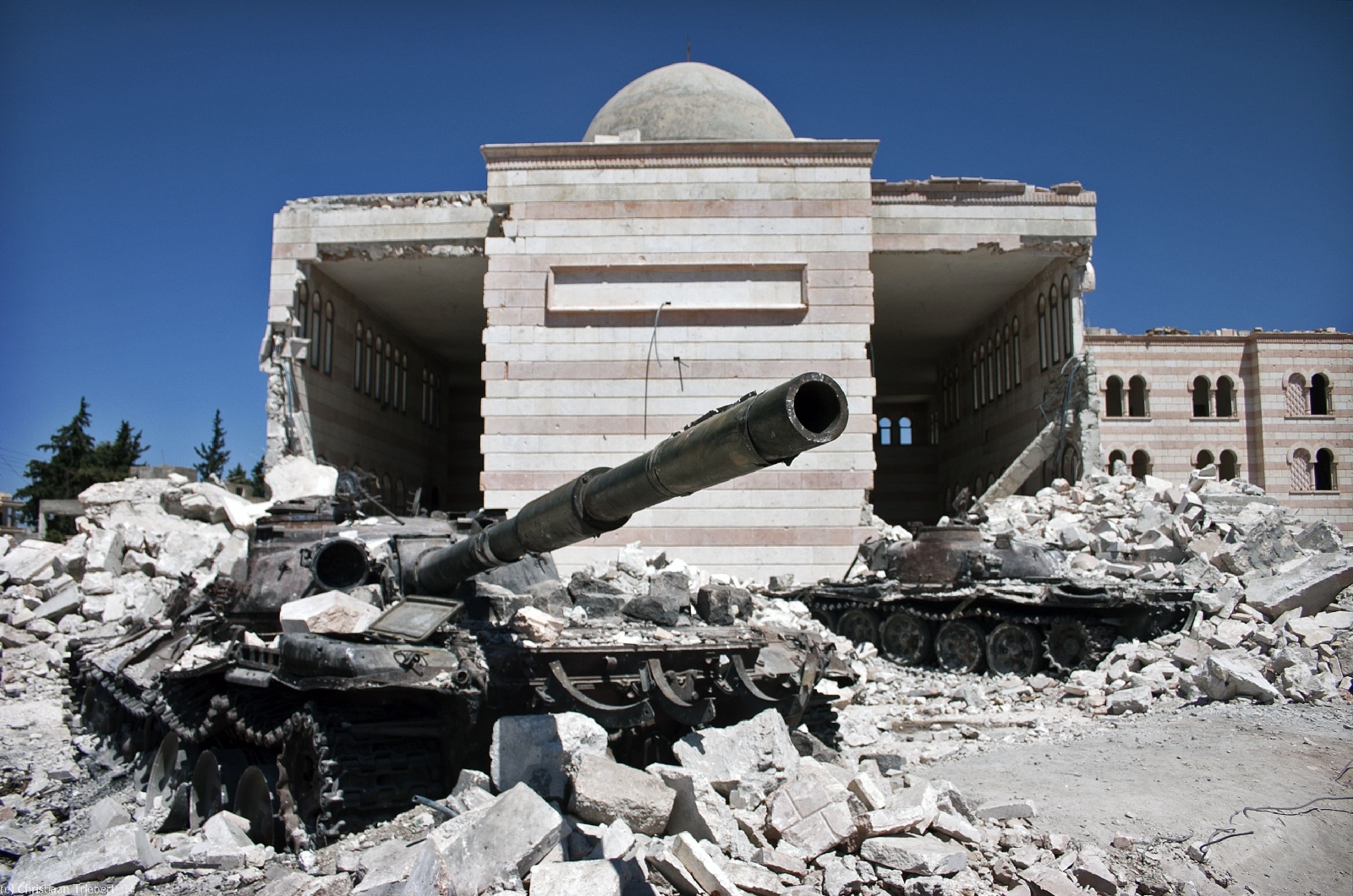Hama has been overrun by Syrian opposition forces, dealing the Assad government a new setback.
In a significant onslaught that threatens the stability of President Bashar al-Assad's government, the Syrian opposition militia has attacked the city of Hama in central Syria. The government continuously maintained authority over Hama throughout the 13-year civil war, which saw the loss and regaining of regions. The dictatorship was able to put an end to the dissent when thousands of Hama residents took to the streets in 2011 during Syria's popular uprising, calling for the overthrow of Assad. The government has now lost control of the city following a four-day rebel attack.
Government forces were "redeployed outside the city" and the Syrian army had lost a large number of soldiers in its effort to protect Hama, the Syrian Defense Ministry admitted in a written statement. The main force behind the rebel onslaught, Hayat Tahrir al-Sham, is an Islamist militia led by Abu Mohammad al-Golani. In a video speech, he said that his men had entered Hama "to heal the wound that has festered in Syria for forty years," referring to the rule of the Assad family.
Less than a week after seizing Aleppo, Syria's second-largest city and a long-standing commercial center, opposition fighters have also entered Hama. The overthrow of Hama, a longstanding representation of the Assad family's dominance, highlights the regime's diminished capacity to maintain control over an unrest-prone populace.
Thousands (the precise number is still unknown) were killed when President Hafez al-Assad, the father of the current president, violently put down an uprising in Hama in 1982. Any Arab leader's attack on their own people is regarded as one of the bloodiest. When Hama saw widespread anti-government demonstrations in 2011, the administration used tanks in the streets and ultimately managed to put an end to the unrest.
The Syrian opposition flag, a horizontal tricolor of green, white, and black with three red stars in the center, is now flying in the center of the city as regime forces withdraw. Groups of young people are seen celebrating armed rebels as they pass past in mud-covered vehicles, which they had used to hide their progress over the desert terrain into the city, in videos and images circulated online. The groups are gathered around a key roundabout in Hama.
Parts of Syria have fallen under the insurgents' control.
The Syrian civil war has been in a state of near-stalemate for a number of years, with the regime regaining control of most of Syria and most fronts coming to a standstill. But even they were caught off guard by the insurgents' rapid onslaught last week. Senior opposition leaders told NPR they didn't anticipate such quick wins. However, the breakdown of regime lines appeared more expected from the viewpoint of Damascus, the capital of Syria.
I'm surprised it took this long," a Syrian local said in reference to the four-day offensive in Hama. Fearing that speaking to Western media might put him in hot water with the regime's feared intelligence services, he asked to remain anonymous.
"It's over," another Damascus resident with intimate ties to the regime's elite told NPR. In addition, he requested anonymity to avoid disturbing his government ties. "The government is corrupt. You know, a civilization cannot endure when there is complete corruption in it.
Syria's economy has been severely damaged by years of violence and sanctions. The economic situation for many Syrians living in regime-controlled areas has worsened since the conflict's peak in 2019.
According to analysts, the dictatorship has become more and more dependent on corruption and revenue from the manufacture and export of Captagon, a highly addictive drug that resembles amphetamines, in order to live. "The regime's military apparatus has stagnated in recent years, rotting from within and crumbling from outside," wrote Charles Lister, Director of the Middle East Institute's Syria Program, in *Foreign Policy*.
These days, he occasionally sees "tanks abandoned on the streets" after they run out of fuel, a Syrian businessman in Damascus told NPR. Opposition militias, on the other hand, have developed into a powerful fighting force. The "Military Operations Department," the rebels' main headquarters, uploaded a video to their website that depicts rows of pickup trucks occupied by heavily armed combatants wearing military uniforms and black masks. Additional film displays artillery, infantry formations, and even armed drones.
The opposition forces are positioned to move 24 kilometers south toward Homs after taking control of Hama. This might cut off Damascus from the coastline area, which has long been a stronghold for the regime and is home to an airport and naval port controlled by Russia, Assad's ally. Assad can no longer afford to lose anything else," Jihad Yazigi, publisher of the *Syria Report* newsletter, told Reuters. It will be a major war for Homs. We're discussing the possibility of regime change if Homs falls.
Although the majority of people in Hama are Sunni Muslims, the neighborhood is more diversified and includes Christians, Ismailis, and Alawites. There are historical connections between al-Qaeda and Hayat Tahrir al-Sham (HTS), which has been classified as a terrorist organization by the United States and the United Nations.
In contrast to other radical Islamist organizations, it has now broken these ties, made an effort to change its image, given up on its worldwide aspirations, and taken a more moderate stance. Its recent governance of the rebel-held enclave of Idlib, which is located close to the Syrian-Turkish border, is indicative of this.
With UN Secretary-General António Guterres advocating for a ceasefire and the protection of civilians, world leaders are asking for a de-escalation in Syria.
Following the Hama offensive, Golani, the leader of HTS, urged his men to see their triumph as one that was won with "mercy and compassion." The group has called on Alawites, who share a sect with the Assad family, to disassociate themselves from the regime and has stated on multiple occasions that it has no intention of hurting minorities.





Post a Comment